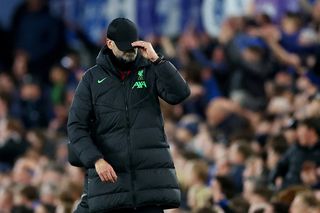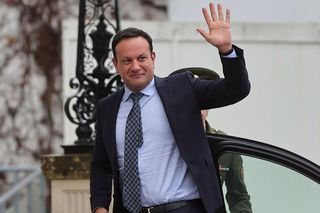TV: The golden boy who didn't bank on being brought low
Rise and fall: Tony O'Reilly was the subject of an RTE documentary
I've only encountered Tony O'Reilly on two occasions and both times were when I was in the company of my friend Karl Johnston, who was rugby correspondent for the Irish Press group throughout the 1980s.
The first time was in the Berkeley Court in the immediate aftermath of an Irish international match in Lansdowne Road and I was struck both by the princely demeanour of the man as he stood among his admiring entourage and also by the courteous affability he showed to a complete stranger in his midst.
The second time, a couple of months later, was at another rugby-related function in another hotel and what struck me then was that he remembered my name from the previous brief conversation - which had been entirely about rugby and specifically about Andy Mulligan and Dave Hewitt, two great players from his own era who, along with himself, had been childhood heroes of mine.
Of course, such flattering gifts as a memory for names are often developed early by people intent on wooing a customer or closing a deal, but I was impressed nonetheless - especially in a society which tended to encourage loutish thuggery as almost a prerequisite for business success.
Some years after those encounters, Tony O'Reilly (or AJF O'Reilly or Dr O'Reilly or, if you must, Sir Anthony O'Reilly) became my employer on this newspaper, and for him after that again came financial calamity and public humiliation, a fate I never thought he deserved, though there are Waterford Crystal workers and victims of the Eircom debacle who may feel otherwise.
Both the man's rise and his downfall were scrupulously and, I felt, fairly documented in David Murphy's hour-long film, Tony O'Reilly: The Real Deal (RTÉ1), though I would have liked more about his rugby heyday when, in the words of Tom McGurk, he was "Ireland's first youthful superstar" - and, indeed, about the Indian summer he enjoyed towards the end of his playing career when he was brought back after a long absence into the national side.
But the film was firmly focused on O'Reilly the entrepreneur and philanthropist, much of the story very familiar, though with some quirky reminiscences and observations from rival businessman Michael Smurfit.
He declared towards the end of the film that, after Allied Irish Bank's "public dressing down" of O'Reilly, he himself "won't do business" with them, while former Northern Ireland deputy first minister Seamus Mallon thought it "a very sad day when an Irish bank added to his problems".
The film left you with the sense of an honourable man - probably over-ambitious and perhaps overweening and somewhat grandiose, too, but still honourable - brought low by some of his own business decisions, but also by forces beyond his control.
Perhaps one of the five young people profiled in Living the Dream (TV3) will become this generation's golden boy or girl in the O'Reilly mould, though this first instalment of a series seemed more intent on raising the profile of chirpy presenter Leanne Moore than of the people whose chosen careers she was celebrating.
Thus, when interviewing 22-year-old Montana native Christian, who photographs surfers off Sligo beaches, Leanne donned a wetsuit and hopped into the water, too. And when chatting to fantasy-film stuntman Peter (formerly a German and geography teacher in Blackrock College), she threw on a leotard and mock-fought him in a gym.
Indeed, the enthusiasm she displayed both during her interviews and during her various tasks was so total as to make me feel very tired and was probably why she never got round to asking her five young dream-jobbers anything other than awestruck questions about how they all came to be so amazingly talented as well as fortunate to be getting paid for something they love doing anyway.
Still, at the end she did offer sage advice. "It's not always about landing your dream job," she earnestly assured us, "it's about making it happen." Why did no one ever tell me that, Leanne? I could have been a cosmonaut.
Also on TV3 but on a much more serious note, The Irish Asylum Seeker Scandal addressed the iniquities of a system that allows 4,500 people to live in a state-decreed limbo while the justice department gets around to making up its mind about their fates.
Sometimes that can take up to 14 years, during which period applicants are lodged in accommodation that costs the state millions and are given a weekly pittance that wouldn't even keep them in crisps or chocolate bars. And then, of course, they can suddenly find themselves deported in the middle of the night back to the country from which they'd fled.
Producer-presenter Ciara Doherty's film was guaranteed to make you angry - not least at a system that allows fortunes to be made from other people's misery. Hearing of this misery from some of those trapped in the nightmare made me ashamed to be Irish.
Non-nationals also featured in an engaging instalment of Cogar (TG4) about the arrival of a drapery salesman from northern India in the wilds of Donegal during the 1960s.
Devindar Mehan toured the area on a bicycle with a large suitcase crammed with clothes and he found ready takers for his wares, despite the fact that, as one farmer recalled, "the locals weren't used to people from India".
Nor were the Mehans used to the Irish weather - Devindar's wife, Ramesh, recalling that soon after she arrived she had to abandon her sari for trousers and jumper.
Devindar set up a drapery shop in Raphoe, currently being run by son Raj, who's as fluent in Irish as the rest of his siblings - though sister Shona thought it "ironic" that she now works for Fáilte Ireland.
Join the Irish Independent WhatsApp channel
Stay up to date with all the latest news














